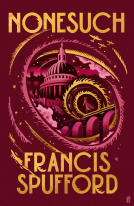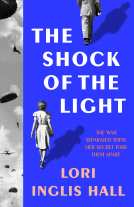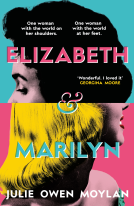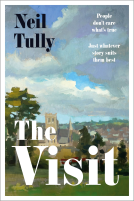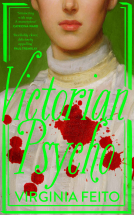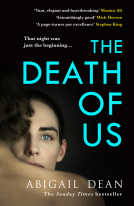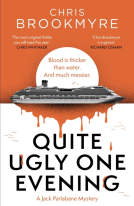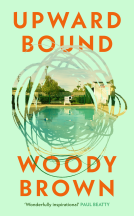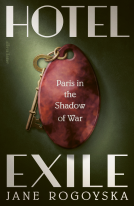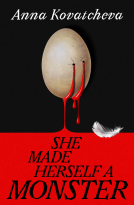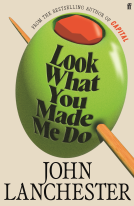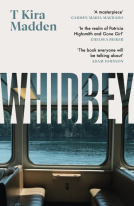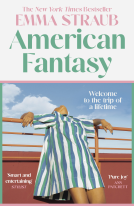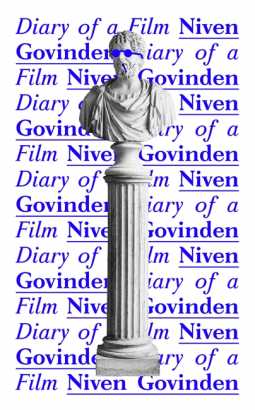
Diary of a Film
by Niven Govinden
This title was previously available on NetGalley and is now archived.
Send NetGalley books directly to your Kindle or Kindle app
1
To read on a Kindle or Kindle app, please add kindle@netgalley.com as an approved email address to receive files in your Amazon account. Click here for step-by-step instructions.
2
Also find your Kindle email address within your Amazon account, and enter it here.
Pub Date 18 Feb 2021 | Archive Date 18 Feb 2021
Little, Brown Book Group UK | Dialogue Books
Talking about this book? Use #DiaryofaFilm #NetGalley. More hashtag tips!
Description
'Niven Govinden's Diary of a Film, his sixth novel, is also his best yet. Smart, sexy and cinematic (in many senses), it is a love letter to Italy and to film' Observer
'Immersive . . . This is a wise and skilfully controlled novel that can be read in an afternoon, but which radiates in the mind for much longer' Financial Times
'A beautiful, poignant novel of love and longing' Telegraph
An auteur, together with his lead actors, is at a prestigious European festival to premiere his latest film.
Alone one morning at a backstreet café, he strikes up a conversation with a local woman who takes him on a walk to uncover the city's secrets, historic and personal. As the walk unwinds, a story of love and tragedy emerges, and he begins to see the chance meeting as fate. He is entranced, wholly clear in his mind: her story must surely form the basis for his next film.
This is a novel about cinema, flâneurs, and queer love - it is about the sometimes troubled, sometimes ecstatic creative process, and the toll it takes on its makers.
But it is also a novel about stories, and the ongoing question of who has the right to tell them.
Available Editions
| EDITION | Other Format |
| ISBN | 9780349700717 |
| PRICE | £14.99 (GBP) |
| PAGES | 224 |
Average rating from 18 members
Featured Reviews
 Paul F, Reviewer
Paul F, Reviewer
"If you are a flâneur, maestro, then I’m a flâneuse, she replied. Walking is what gives me life, and what stimulates my ideas."
Diary of a Film is narrated by an acclaimed film director, his origins "from a country built on collectivism and potatoes", whom leaving his husband, an author, and their young son behind in their home city, travels to a film festival, one where he has twice previously won the jury prize:
"I flew to the Italian city of B. to attend the film festival in late March. Our entry into the competition, a liberal adaptation of William Maxwell’s novel The Folded Leaf, had been officially confirmed, and I was expected to participate in three days of interviews and panels to promote the release, with a jury screening on the second evening"
On arrival in B. he ducks out of immediately arriving at the hotel, and getting dragged into the rounds of publicity, and instead walks around the city ("in walking I felt a purpose regained"), setting the tone for the rest of the novel.
On his first walk, in a bar, he meets Cosima, a writer, and admirer of his films. She is now writes art history and criticism, but, many years earlier, in her twenties, was a novelist. The two talk and walk, exchanging stories and views on art, and she shows him a spectacular mural by her ex-lover, one that makes a deep impression on him as does, when he later reads it, her autobiographical novel based on the suicide of the same artist.
Later he takes his two young lead actors on a similar wander, although one that ends up heading in the direction of the same mural:
"Does anyone know where we’re going? asked Lorien, saying what he thought needed to be said, but with enough nonchalance in his tone to suggest his readiness to wander. We have the GPS on our phones and a collective memory, I said. That’s more than enough to cobble a route together. But no route was planned. We walked and carried on walking. I took comfort in the trio of shadows falling behind us, a unit whose allegiance was unquestioned. During the making of the film I had taken them on similar walks, a habit fostered in the preproduction weeks before shooting began, and then sporadically when the photography allowed. I wanted them to feel the fabric of their location through their footsteps; how in walking through a town at night, you learned of its true nature, its rhythms and idiosyncrasies. It was more than the passing voyeurism as people dressed or undressed through windows yet to be drawn, or in the silence of the main thoroughfares, with its occasional disturbance of passing cars. The warmth of the silence enveloping you as you walked, aware of your breath and those of your companions; how your steps would fall into line at times, each of us consciously making it so, both jokingly and to physically demonstrate that we were attuned."
The novel is told over those 2-3 days at the festival, and the narrator muses on, and discusses with his walking companions, his own life, creativity in general. And, as the novel progresses, others question him on the right of someone to tell someone else’s story or, as he has done with the Maxwell novel and hopes to do with Cosmima’s, to adapt their work for one’s one artistic ends.
The style of the novel has a very European sensibility - it’s an odd comparison in many respects but I was reminded in this sense of the novel’s of Tim Parks.
For me, as a fan of literature but not particularly of cinema, the director’s musings came across as a little pretentious, which I suspect was not the authorial intention (and I couldn’t help agree when one character comments “you become a different person when you talk about books”):
"There was a moment in a theatre as the lights went down that you truly understood the depth of your vulnerability: that for all the good wishes and the boosting presence of family around you, the truth that you were about to be judged was inescapable. Your visual imagination and use of language, your depth and humour, as well as compassion and emotional intelligence: these were to be dissected, held aloft and appraised. I knew of no other art form that took apart a human being to the same degree of complexity."
Although the contrast drawn between the life of a director and that of an author was an interesting one:
"I’d been a visiting professor at a film school in Madrid for a number of years, and this is one of the first things I’d say to the students there. Find your people! Open yourself up until you find those you can trust, who believe in your talents and will both complement and challenge them. Be generous enough to do the same with others. Work on the films of those you love as well as projects of your own. Use everything you’ve internalised but don’t let that limit you. You cannot make films if you’re unable to speak or to accept the presence of other human beings. Without those things you’re simply creating art installations, important in themselves, but they are not cinema, and that is what I’m here to teach you.
I was jealous of the lives novelists lived but I knew that I was not a solitary creature. Novels were a different kind of cage, one where you willingly locked yourself in. Cosima had something of the captive in her, I thought; that same mixture of passion and restraint I’d seen in other novelists I’d worked with."
Overall, a quietly impressive novel. 4 stars.
Review to be published on Goodreads when less than 2 weeks to publication date.
Readers who liked this book also liked:
Julie Owen Moylan
General Fiction (Adult), Historical Fiction, Women's Fiction


